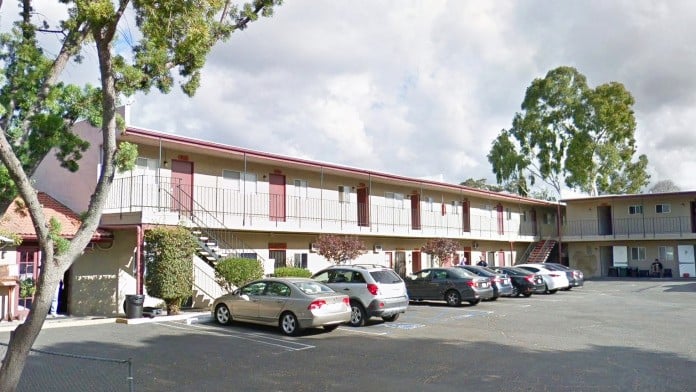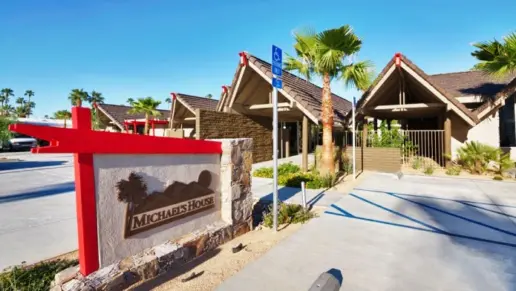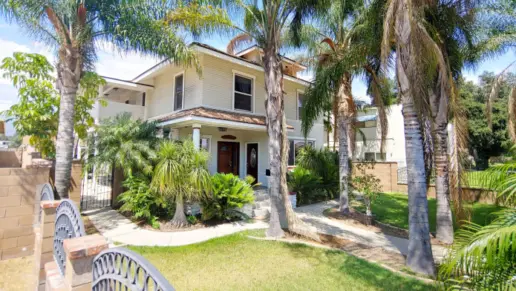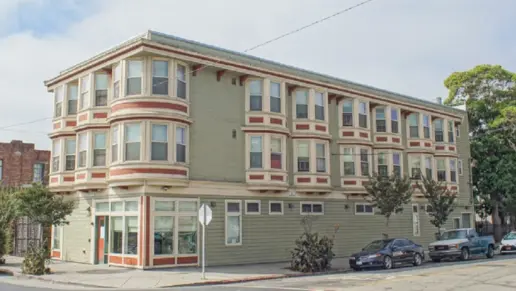This place can save your life, but the staff are extremely manipulating people. I dont want to stray anyone from getting help, but be warned the staff are not good people. They are junkies themselves. Manipulating program being ran here.
About Casa Raphael Residential Treatment
Alpha Project is a nonprofit human services organization that serves over 4,000 men, women, and children each day in the San Diego, California, area. Their services include residential substance abuse treatment, supportive housing for people with special needs, basic and emergency services for the homeless, transportation assistance, and mental health counseling.
The Alpha Project empowers individuals, families, and communities by providing work, recovery, and support services to people who want to better their lives. Residential treatment, housing, and mental health services are provided. Successful completion of the program requires achieving stable and sustainable independence through education, employment, and sobriety.
Alpha Project is a 12 week state licensed and certified residential treatment program for men in recovery from substance abuse. Residents participate in an evidence-based practice curriculum. The program provides housing, food, recovery workshops, case management, mental health counseling, access to healthcare, work, financial assistance, and other support services.
Temporary Bridge Shelter is a 325 bed facility that serves vulnerable individuals by providing shelter. Their care model is comprised of a trauma-informed lens. They assist by providing necessary interventions and behavioral change opportunities.
Alpha Project’s Rapid Re-Housing Program provides rental assistance, security deposits, advocacy services, and support for those who need help finding affordable housing. Case management is offered to help remove individuals and their families from the street by helping place them into permanent housing.
Take Back the Streets is a transitional employment service that helps link homeless individuals who are able to work with immediate transitional employment and training. The community is served through these new workers filling job gaps at an affordable rate for their services.
The Home Finder Program is a service-based initiative that helps connect those who are homeless and living with mental illness with appropriate services to help them live a healthy life. This includes medical, dental, and mental health support, along with housing.
Facility Overview
Latest Reviews
Rehab Score
Gallery

Location
Other Forms of Payment
Self-pay involves paying for treatment out of your own pocket. You can use savings or credit, get a personal loan, or receive help from family and friends to fund your treatment. If you don't have insurance or your insurance plan doesn't cover a specific program, self-pay can help ensure you still get the care you need.
Financial aid can take many forms. Centers may have grants or scholarships available to clients who meet eligibility requirements. Programs that receive SAMHSA grants may have financial aid available for those who need treatment as well. Grants and scholarships can help you pai for treatment without having to repay.
Sliding scale payments are based on a client's income and family size. The goal is to make treatment affordable to everyone. By taking these factors into account, addiction recovery care providers help ensure that your treatment does not become a financial burden to you or your family, eliminating one barrier to care.
Addiction Treatments
Levels of Care
Treatments
The goal of treatment for alcoholism is abstinence. Those with poor social support, poor motivation, or psychiatric disorders tend to relapse within a few years of treatment. For these people, success is measured by longer periods of abstinence, reduced use of alcohol, better health, and improved social functioning. Recovery and Maintenance are usually based on 12 step programs and AA meetings.
Drug rehab in California teaches participants constructive ways to stay clean and sober. Treatment revolves around helping individuals stop using the substance they are addicted to and learn healthy habits to avoid relapse.
A combined mental health and substance abuse rehab has the staff and resources available to handle individuals with both mental health and substance abuse issues. It can be challenging to determine where a specific symptom stems from (a mental health issue or an issue related to substance abuse), so mental health and substance abuse professionals are helpful in detangling symptoms and keeping treatment on track.
Opioid rehabs specialize in supporting those recovering from opioid addiction. They treat those suffering from addiction to illegal opioids like heroin, as well as prescription drugs like oxycodone. These centers typically combine both physical as well as mental and emotional support to help stop addiction. Physical support often includes medical detox and subsequent medical support (including medication), and mental support includes in-depth therapy to address the underlying causes of addiction.
Programs


Clinical Services
Cognitive behavioral therapy in California is a method that therapists often use for the effective treatment of substance use disorders. It is based on the principle that substance abuse stems from unhelpful ways of thinking and patterns of behavior, which can be changed by helping the individual learn better ways of coping.
Group therapy is any therapeutic work that happens in a group (not one-on-one). There are a number of different group therapy modalities, including support groups, experiential therapy, psycho-education, and more. Group therapy involves treatment as well as processing interaction between group members.
In individual therapy, a patient meets one-on-one with a trained psychologist or counselor. Therapy is a pivotal part of effective substance abuse treatment, as it often covers root causes of addiction, including challenges faced by the patient in their social, family, and work/school life.
For clients who are struggling with ambivalence toward change, motivational interviewing in California can help strengthen their commitment to change. Using a conversational method, the therapist helps you explore your motivations and empowers you to make the changes you desire.
Trauma therapy addresses traumatic incidents from a client's past that are likely affecting their present-day experience. Trauma is often one of the primary triggers and potential causes of addiction, and can stem from child sexual abuse, domestic violence, having a parent with a mental illness, losing one or both parents at a young age, teenage or adult sexual assault, or any number of other factors. The purpose of trauma therapy is to allow a patient to process trauma and move through and past it, with the help of trained and compassionate mental health professionals.
Family therapy offers a platform for members to have an open dialogue about the challenges that addiction has placed on the family unit. Through guided sessions, therapists can help families develop healthy communication skills and address unresolved issues. By working together toward a common goal, they help to support their loved one's sobriety.
Life skills trainings involve all the skills a person must have in order to function successfully in the world. These include time management, career guidance, money management, and effective communication. Truly successful addiction recovery is based on the ability to not only live substance-free, but to thrive. Life skills teaches the practical necessities of functioning in society, which sets clients up for success in life, and therefore sobriety.
Experiential therapy is a form of therapy in which clients are encouraged to surface and work through subconscious issues by engaging in real-time experiences. Experiential therapy departs from traditional talk therapy by involving the body, and having clients engage in activities, movements, and physical and emotional expression. This can involve role-play or using props (which can include other people). Experiential therapy can help people process trauma, memories, and emotion quickly, deeply, and in a lasting fashion, leading to substantial and impactful healing.
Amenities
-
Residential Setting
-
Private Rooms
Staff

President & CEO

CFO

Chief Business Development Officer

Chief Administrative Officer

Chief Development Officer & Volunteer

Senior Director of Shelter Services, Outreach and Special Projects

Senior Director of Alcohol and Drug Services

Senior Director of Supportive Housing
Contact Information
993 Postal Way
Vista, CA 92083


